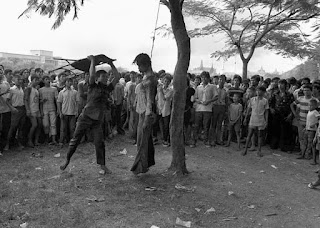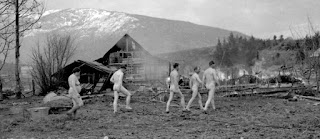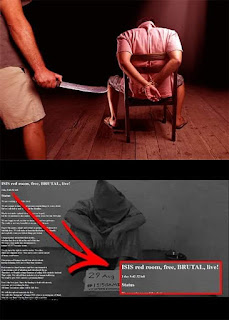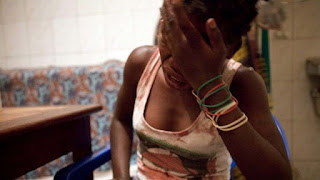Neal Ulevich won the 1977 Pulitzer Prize for a series of photographs of disorder and brutality in the streets of Bangkok, Thailand
Neal Ulevich won the 1977 Pulitzer Prize for a series of photographs of disorder and brutality in the streets of Bangkok, Thailand.
The Thammasat University Massacre took place on October 6, 1976. It was a very violent attack on students who were demonstrating against Field Marshall Thanom Kittikachorn. Field Marshal T. Kittikachorn was a dictator who was planning to come back to Thailand. The return of the military dictator from exile provoked very violent protests. Protestors and students were beaten, mutilated, shot, hung and burnt to death. Photographer: Neal Ulevich.
Neal Hirsh Ulevich (born June 18, 1946) is an American photographer. He won a Pulitzer Prize in 1977 for "photographs of disorder and brutality in the streets of Bangkok".
Ulevich was born and raised in Milwaukee, Wisconsin, where he attended public and private schools before enrolling at the University of Wisconsin-Madison, where he graduated in 1968 with a BA degree in Journalism. While there, he began a career-long association with Associated Press, first as a campus correspondent, later as part-time staff. Ulevich developed a strong interest in China while a student, a fascination that determined the direction of his career.
After graduation, he worked for AP as a writer in St. Louis, Missouri, before resigning to study Chinese in Hong Kong. In 1970 friends and associates in journalism urged him to travel to Indochina to witness the U.S. incursion into Cambodia, assuring him the cross-border operation would herald "the last two weeks of the war". The advice was premature. Ulevich witnessed the last two weeks of the Indochina war in April, 1975. During the interim he freelanced as both writer and photojournalist and rejoined AP in the Saigon, Vietnam, bureau. He returned to the University of Wisconsin-Madison on a National Endowment for the Humanities fellowship in journalism, later resuming his AP work in Saigon. He covered the chaotic evacuation from Saigon at war’s end, departing by helicopter from the roof of the U.S. embassy.
An AP assignment to Bangkok followed. A worsening political situation in 1976 culminated in violent confrontation at Thammasat University in the Thai capital. There he captured images that won the 1977 Pulitzer Prize for Spot News Photography. After leaving Thailand, Ulevich worked for AP as Asia Photo Editor in Tokyo and as photojournalist in Beijing. He returned to Tokyo in 1988 to supervise AP’s electronic communications for Asia.
Ulevich returned to the United States in 1990. He retired from AP to resume freelance photography in 2002. He lives in Thornton, Colorado, a suburb of Denver.












Comments
Post a Comment